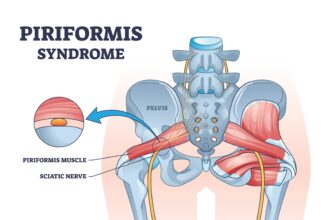Many individuals take supplements to improve their daily consumption of a specific nutrient. It helps them to improve their overall well-being and health. For instance, if you have ever taken a probiotic, fish oil, multivitamin, or melatonin, you have used dietary supplements. The supplements are typically sold over-the-counter at drugstores, pharmacies, or online.
- What Are Dietary Supplements?
- Why Are Supplements Beneficial for the Human Body?
- Complements Missing Nutrients
- Promote Overall Health
- Increase Physical Performance
- Facilitate Weight Loss
- Improve Digestive Health
- Different Dietary Supplements and Their Functions
- Fiber
- Proteins
- Risks Associated With Supplements
- Conclusion
Before you plan on taking any supplement, you must know their benefits, functions, why you need them, and how safe they are for you. Here, we have covered some of the topics related to supplements for you to have a basic understanding.
What Are Dietary Supplements?
Dietary supplements may include different minerals, vitamins, herbs, enzymes, and others. They are often consumed as pills, gummies, liquids, capsules, or even powders. Some dietary supplements are derived from natural food products, while others are synthetically produced. The supplements are mainly taken as a way to add or supplement your diet. It means that it
fulfills the required minerals, vitamins, or others that are not present in your food. It ensures that you get enough of a certain essential nutrient each day.
For instance, if a person follows a vegetarian or keto diet, they may not consume the daily required amounts of particular nutrients. These nutrients may include B vitamins, and through the supplements, vegetarians can bridge this gap. Moreover, people also use supplements for a known vitamin deficiency.
Why Are Supplements Beneficial for the Human Body?
It is important to know why supplements are beneficial for the human body and why one should take them.
Complements Missing Nutrients
With the help of supplements, you can compensate for any deficiencies of different nutrients. These may be vitamins, minerals, and others that may be absent in your daily diet.
Promote Overall Health
Some supplements are made to improve the overall health. It may be strengthening the immune system, maintaining proper hormone balance, or improving cardiovascular health.
Increase Physical Performance
Some supplements are also formulated to increase physical performance. They are designed to boost athletic performance and increase endurance. Furthermore, they may also help in muscle strength and recovery after workouts and exercises.
Facilitate Weight Loss
Some supplements also help to speed up metabolism, increase fat burning or control appetite. These can be beneficial for the ones who want to lose weight.
Improve Digestive Health
Supplements having digestive enzymes and probiotics can help to have a healthy balance. You can have a good digestive system and hence improve digestion and metabolism.
Different Dietary Supplements and Their Functions
There are many types of food supplements that you can find in the market. They are all designed and formulated to meet particular requirements. Here are the most common yet the most important categories.
Vitamins and Minerals
This category includes supplements providing essential vitamins and minerals. These may include vitamin A, C, D, E, K, and B complex, iron, zinc, calcium, and others. The mentioned supplements are formulated to complement nutrient intake when there are specific needs or deficiencies.
Vitamins are extensively used across all age groups. They include different types, and each has its own specific benefits.
- Vitamin A: These are important for supporting growth and development and for eye health.
- Vitamin B Complex: Important for nervous system function and energy production.
- Vitamin B12: Supports neurological health and red blood cell production.
- Vitamin D: Important for overall well-being, specifically bone health.
- Vitamin C: Famous for its immune-boosting properties.
Minerals also play a major role in maintaining optimal health. The different important mineral supplements are mentioned below.
- Iron: Important for healthy red blood cells (RBCs) and preventing iron deficiency.
- Calcium: Supports strong teeth and bones.
- Zinc: Promotes immune function and wound healing.
- Magnesium: Supplement for heart health, muscle function, and nervous system health.
- Essential Fatty Acids: Known for benefits for brain, cardiovascular, and skin health. These are omega-3, omega-6, and omega-9, and others
Fiber
“Fibers help the human body to improve digestion. They also play a key role in helping control appetite. Hence, they are beneficial to maintain an ideal body weight. Fivers are typically found in fruits, grains, vegetables, peas, and beans. If you are not consuming these natural sources, you should take fiber supplements to fulfill the fiber requirements and improve digestion.” – Kartik Ahuja, Marketing Manager at PortaPotty
Proteins
“Protein supplements are commonly utilized by athletes. Moreover, they are also widely used by people who want to increase their protein intake. The protein supplements can be in the form of vegetable protein, casein, whey powder, and others. These help in muscle growth, repair, and recovery. Proteins like whey protein shakes are famous among fitness enthusiasts as well.” – Max Mikhaylenko, President & Co-founder at Snap Supplements
Tips to Take Supplements Responsibly
If you want to maximize the benefits of supplements, you should have to be responsible with their consumption. Here are some easy tips that you can consider.
- Make sure to follow the instructions related to dosage. These are typically recommended by the doctor or mentioned on the packaging. Follow the appropriate timing of consumption, such as before meals, before bedtime, or after meals.
- Be cautious of potential drug interactions since some dietary supplements may interact with specific medications.
- Pay attention to any side effects or symptoms that may arise. Stop consuming the supplements if you are experiencing any unusual symptoms.
Risks Associated With Supplements
According to Martin Seeley, CEO of Mattress Next Day, “For most people, supplement consumption is completely safe and does not have any serious health risks. However, if these supplements are used in a larger dose, they may pose adverse reactions. If you notice any side effects, it is important to immediately contact a doctor or healthcare professional for appropriate measures. Be aware of the signs and symptoms of the adverse reaction. Some common signs of a serious side effect to any supplements are mentioned below.”
- Nausea or vomiting
- Stomach pain
- Chest pain
- Fatigue or lightheadedness
- Difficulty in breathing
- Diarrhea
- Loss of appetite
- Unintended weight loss
Conclusion
Although supplements are beneficial, it is essential to prioritize maintaining a balanced and healthy diet. If you want to add supplements to your daily routine, consult with a nutritionist or a doctor. Get a personalized recommendation to consume supplements that are suitable for your particular needs. You should understand that supplements should only complement a healthy lifestyle. You should not take them as a substitute for a balanced diet and overall well-being.










